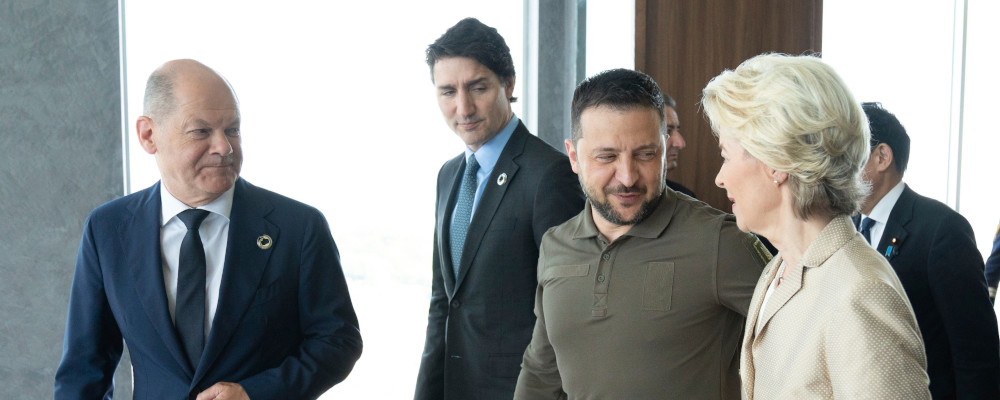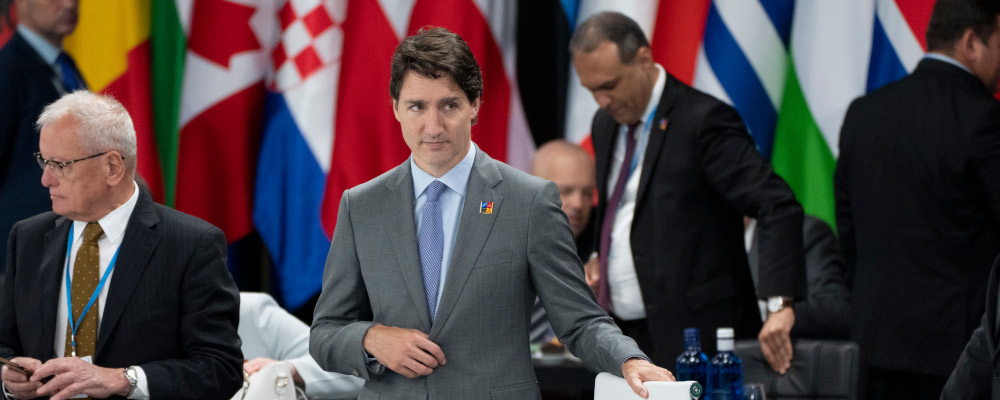In September 2016, I arrived in the U.K. to do a master’s degree. Early on in this time abroad, I would proudly reflect on my upbringing in Edmonton and how my Canadian citizenry was well-respected and a genuine advantage in the world. Seven years later, having now studied and worked in several places, I have seen this global Canadian advantage steadily evaporate.
Nowadays, the response given by foreigners when learning of my Canadian heritage is not “We wish we lived in Canada!” but rather a more quizzical “What is happening in Canada?” Unfortunately, Canadians living abroad are met with an unexpected burden: explaining to perplexed non-Canadian friends and colleagues what has gotten hold of the Canadian government, especially its sporadic foreign policy.
Over recent years, the government has approached its foreign policy in a manner that prioritizes image over substance and moralizing rather than grappling with the complexities and compromises of geopolitics. Canadians, previously well-known for our seriousness, discipline, and work ethic, have made basic errors in due diligence, best reflected in the standing ovation given in the House of Commons to a former Nazi.

We have picked fights over Twitter with Saudi Arabia, and have received international attention for our public tussle with India, another ally amid an evolving world order. Our relationship with the U.S. is a concern, given the possible November 2024 election of Donald Trump and the more checkered U.S.-Canada relationship of 2017-2021.
These ongoing public battles reduce our capacity to influence the forces that shape our world and affect our domestic situation, such as promoting investment conducive to increasing GDP per capita. As Canadians, our advantage is found in the aggressive but discrete formation of relationships across many stakeholders, not in pious battles with larger powers.
My own experience, having worked for a geopolitical connecting and convening body, is that the recent outward-facing decisions of the Canadian government have made operating in the world more difficult for those of us living abroad. In this work, I engaged with Brits, Americans, Europeans, Japanese, Chinese, and others and felt, over this period, a gradual decrease in respect toward Canada.
Many Canadian colleagues living in other countries voice similar frustrations. As a result, Canadians who are proud of advancing the cause of peace, order, and good government in our global diaspora increasingly act alone, downplaying the recent decisions of the government.
To the credit of the government, Minister of Foreign Affairs Melanie Joly delivered an October 30, 2023 speech in Toronto on “Canadian Diplomacy Amidst Geopolitical Uncertainty,” emphasizing the importance of Canadian sovereignty and pragmatic diplomacy and “keeping allies close, while also being open to different perspectives as we encourage others to take a chance on peace.”
But this speech raises the question as to why the government has lacked such pragmatism to date. In any case, geopolitics always requires pragmatism and a focus on sovereignty, as every nation-state pursues its own interests. Canada cannot simply be open to different perspectives—it must engage seriously with them, participating in the world as it is.
This could mean forming alliances with BRICS nations that are key players in the emerging world order. Saudi Arabia is a rising power in modern geopolitics, indispensable to future peace in the Middle East. A Canada-Saudi Summit could explore options for a more durable peace in the Middle East, providing space for the U.S. to carefully consider its own approach as Canada becomes a valued interlocutor.

It would do us well, as Canadians living in a complicated world and seeking to be forces for good, to remind ourselves that the world beyond our borders is characterized more by fallenness than by perfection. The 20th-century theologian and international relations commentator Reinhold Niebuhr notes that nations win out over time not only by being moral but by combining morality with force, whether economic, military, or diplomatic ingenuity and influence through networks.
Yet, the fact that few Canadian political leaders across stripes have lived or worked abroad means that we risk becoming naïve to these realities. We should embrace, rather than castigate, Canadians who have succeeded beyond our borders when they return home to put their wisdom, networks, and love of Canada to good use through service to our great nation.
The world into which we are entering is multipolar, with a vast middle between the U.S. and China. There is much for the taking, though considerable risk. For Canadians, there have seldom been times when we can more effectively make a difference. But effectiveness requires both a humility that is absent in the government and a global respect of Canadians that is fast fading.
If we can employ our characteristic seriousness, discipline, and work ethic while recognizing that the dividing line between good and bad is more ambiguous than black and white, then we will put ourselves in a stronger position to contribute meaningfully, in a Canadian way, to peace.




